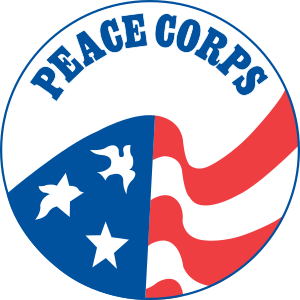It is one of the ironies of our time that the last vicious efforts to put the final nail in the coffin of American unions should be followed by news of the appalling labor practices of the Asian manufacturers upon whom our high tech companies depend. (And,yes, I am writing this post on an iPhone.) Rather than allowing the misplaced envy of the right wing to reduce all of our workers to poverty and serfdom, we should be pursuing a National Industrial Policy aimed, in part, at improving the lot of Asia's slave laborers to the point where working people in all of our countries can lead a decent life. This idea is neither original nor new, but perhaps its time has finally come.
Terrorism Is Not The Enemy
As we approach the tenth anniversary of the most devastating terrorist
attack in American history, a moment of quiet reflection for the dead
will be in order. For there will be no end of cacophony over the
meaning of the event and its implications for American's future. I do
not know if there is consolation for the horrible deaths of those who
were murdered on that September morning almost ten years ago.
I would not want myself or my loved ones to perish in a conflagration
like the one that took down the Towers, or for that matter in the wall
of water that eliminated the coast of Japan, or the earthquake that
shattered Haiti. Any horrible, painful death — whether through the
agency of man or nature — should be averted wherever foresight,
preparation, or quick action can do so.
I think, however, that the psychological impact of the 9/11 terror
attacks has had the intended effect of shifting our perspective and our
resources to our detriment. We have exhausted our economy, curtailed
our liberties, and wreaked havoc in the world, and yet how many people
believe that we are a stronger, more secure, more prosperous, more
hopeful nation than we were on that fatal day in 2001?
We must guard against terrorism, but it is only one of the many things
we must guard against. Disaster, accident, disease, and poverty all claim more
deaths than terrorism, and yet neither disaster relief, medical research,
development aid, nor anti-poverty efforts can grab the headlines the way
terrorism does. It is conceptually easy to kill a terrorist; it is
conceptually very difficult to run an economy. One should not conclude,
however, that the former is worthy of more attention than the latter.
The failure to manage the economy in a manner that creates prosperity
and opportunity for all Americans is the single greatest
existential threat to America today, for without that prosperity and
opportunity, we can neither care for our citizens at home nor repel our
enemies abroad. Close behind is the threat that we will sacrifice our
liberty in a false bargain to purchase greater security. After that we
might consider the ongoing challenge of relations with hostile states
such as Iran and North Korea and great powers such as China and India.
Terror is a priority somewhere down the list: we can save more lives at
the National Institutes of Health than at the Department of Homeland Security.
And we must be creative in our approach. It is too early to tell, but
the peaceful revolutions in Egypt and Tunisia may go farther in
discrediting Al Qaeda and bringing peace to the Middle East than all our
wars. For all our blood-soaked history, we do better in the world
forging alliances and supporting democracy — as a matter of policy
— than we do unleashing the daunting — but expensive —
power of the United States military.
The lure of world dominance is a seductive but ultimately disastrous
chimera. We need a military that can discourage aggression and defeat
it when it is not discouraged. We do not need to send expeditions to
little countries all around the world. We also need to have an economy
that can sustain our military. As it stands, the level of our military
expenditures is undermining the strength of the economy that pays for
the military in the long term. We need to cut the military now to save
it, and ourselves. We can do better in the war on terror with a smaller
military and a stronger diplomatic corps, and doing so will also allow
us to focus on the biggest threats to our lives, liberty, and property in
the coming decade: the erosion of our economy and the disenfrachisement
and impoverishment of our people.
Family and Friends
Last week I took my family on their first trip to Los Angeles. For the girls, it was a series of firsts: first trip on an airplane, first trip to the West Coast, first trip to the beach, first view of the ocean, first ride on a boat, first stay at a hotel. In addition to being sunburnt to a precancerous fiery red, highlights of the trip included a visit to the La Brea tar pits, Venice Beach, Dume Beach, and yes, inevitably, Disneyland. (It is amazing what a cheap bailing wire and pasteboard aspect Disneyland presented in comparison with my memories of several decades past.) And no, the years have not made me fonder of carnival rides that go high and fast.

Image via Wikipedia
The cross section of people that assembled for the reunion continue to be an inspirational cadre who are promoting the common good on a daily basis. From the engineers who are keeping the water supply safe and promoting solar and geothermal energy, to the teachers who are educating our children, particularly our special needs children, to the environmental scientists who struggle to save our own wilderness heritage in the face of too much bureaucracy and too little money, this is a group that has remained committed to making a difference. My old friends, and I say that proudly, include an eye doctor, an U.N. translator, a software executive, and an entrepreneur and are involved in endeavors that span the globe from France to Australia to China.
On a personal note, I was particularly glad to see three people who made my experience in Morocco especially meaningful, The first, a co-organizer of the event, was one of the first people I met in Peace Corps and one of the ones I have known best and seen most over the years - a crazy-assed water baby who once griped, "I am everybody's best friend in Peace Corps." I am glad he is mine. The second was my next-door neighbor, only four hours away by way of the derelict Mercedes known as "grand taxis." A person of style, poise, and grace, she was the best neighbor one could have -- supportive, present when needed, and tolerant of the foibles of someone who has spent too long in an isolated Moroccan village. Third was the volunteer who organized the program at the La Creche Lalla Hasna orphanage where I spent my summer filling in between teaching stints in the countryside, an exemplar not only of concern and compassion for children but also of grace and cultural sophistication. (By way of example, she travels with the music of the Tuareg on her iPhone).
Justice requires a longer tribute than space allows; there is not space here to discharge my debt to the many Volunteers who bettered my life both during and after Peace Corps. But at our reunion, for one brief shining moment, we were again Peace Corps Morocco. And for that moment, hijinks aside, we could remember that we were and are heirs to the clarion call issued in a simpler time by President John F. Kennedy in his Inaugural Address: "And so my fellow Americans, ask not what your country can do for
you - ask what you can do for your country."
They Also Serve
We live in extraordinary times, if only we can lift our eyes from the press of the mundane long enough to see it. As I write, I have just finished reading a series of "tweets" broadcast by a friend in besieged Kabul, one of many friends in the international diplomatic/aid community working to ameliorate conditions in the most desperate places in the world.

Image via Wikipedia
Although I spent two years in the Peace Corps, I was always particularly impressed by my Peace Corps colleagues who went on to make careers of international service. Over the years, I have intermittently followed their careers as they narrowly cheated death from landmines in Zaire, tried to patch up Rwanda after the genocide, stimulated agricultural production in Mozambique, and tried to foster democracy in Afghanistan. And while I am amazed that Google can rescan the Haitian landscape within hours in order to give rescuers a detailed map of the devastation, I recognize that the key element in repairing the frayed edges of the international community is the people on the ground. With their unique blend of courage and compassion, they are my heroes.
John Milton, one of the most prodigious intellects of the seventeenth century, who played an active political part in one of England's greatest political upheavals, spent the latter part of his life confined to comparative inactivity by total blindness. Like Beethoven composing symphonies he could not hear, Milton dictated Paradise Lost from memory. In his sonnet On His Blindness, Milton wrote, "They also serve who only stand and wait." But among the vast majority of us who effectively "stand and wait," at least with respect to the world beyond our borders, let us have a moment's reflection for those who go forth and do, at their peril, and wish them a safe return.
Crooked Coalition Official Gets Nine Years
Robert Stein, a former comptroller for the U.S. Coalition Provisional Authority which governed Iraq and oversaw the reconstruction effort after the U.S. invasion, was sentenced to nine years in prison and forced to return $3.6 million in taxpayer money that he garnered in bribes for diverting nearly nine million dollars in contracts to a particular American contractor. Characterized as "one of the largest fraud schemes to emerge from the reconstruction of Iraq" by the Post, this scheme leaves one to wonder how many others there have been and how big they were.
For anyone who doubts . . .
Persistent Race Disparities Found - washingtonpost.com
. . . that race in America will remain a major issue for a long time to come, the Washington Post reports on the stark differences in standards of living among members of different races:
White households had incomes that were two-thirds higher than those of African Americans and 40 percent higher than those of Hispanics last year, according to data released yesterday by the Census Bureau. White adults were also more likely than black and Hispanic adults to have college degrees and to own their own homes. They were less likely to live in poverty.
Morocco Foundation and Macy's Pair Up in Fundraiser
The Morocco Foundation announces:
When you shop at Macy's on September 16th, 2006, you help the Morocco Foundation fund its various humanitarian and educational projects in Morocco .
Purchase the Macy's Discount Pass from MF ($5.00) and enjoy a wide array of discounts up to 20% throughout the store.To take advantage of this unique offer, email us at:
info [at] morocco-foundation.orgTo directly purchase your tickets:
Nadia.Serhani [at] morocco-foundation.org

![Reblog this post [with Zemanta]](http://img.zemanta.com/reblog_e.png?x-id=1e303cc8-315e-4d28-b285-58f673a67b0f)